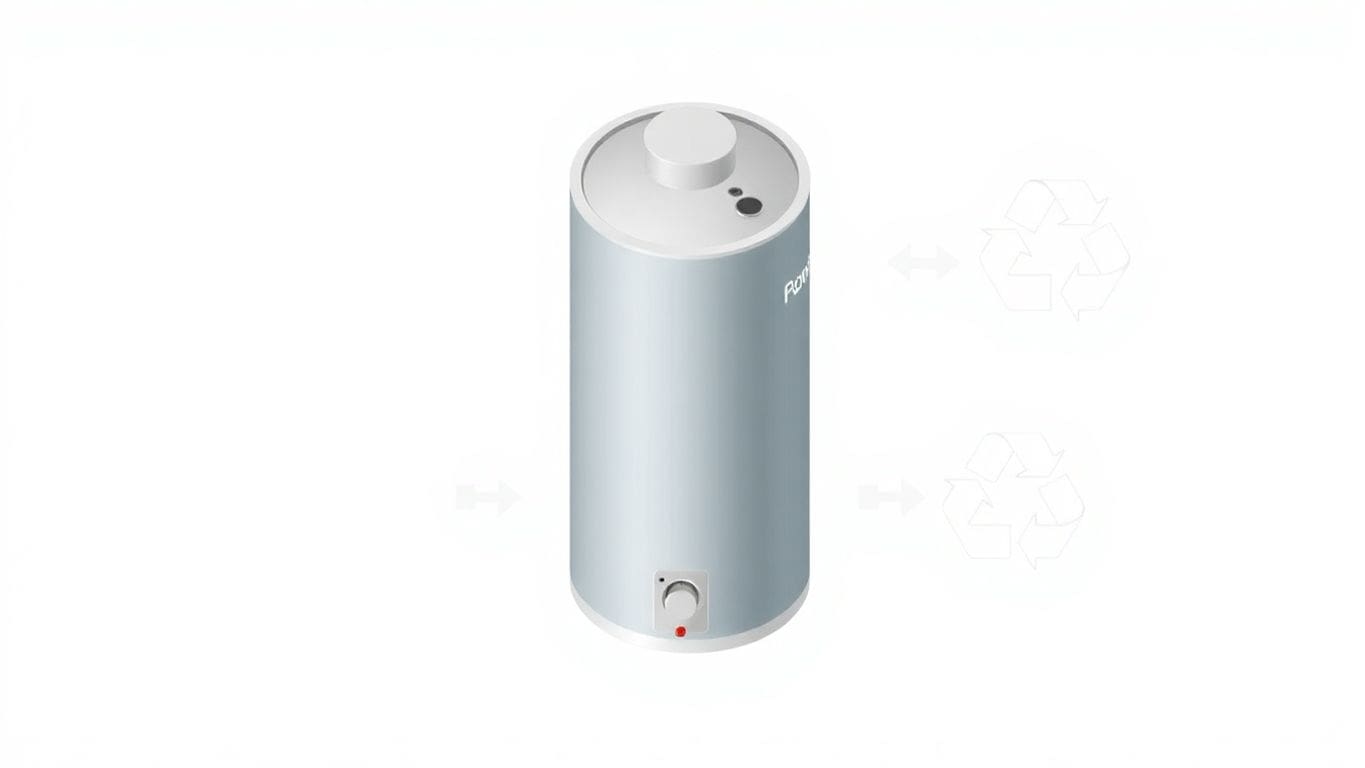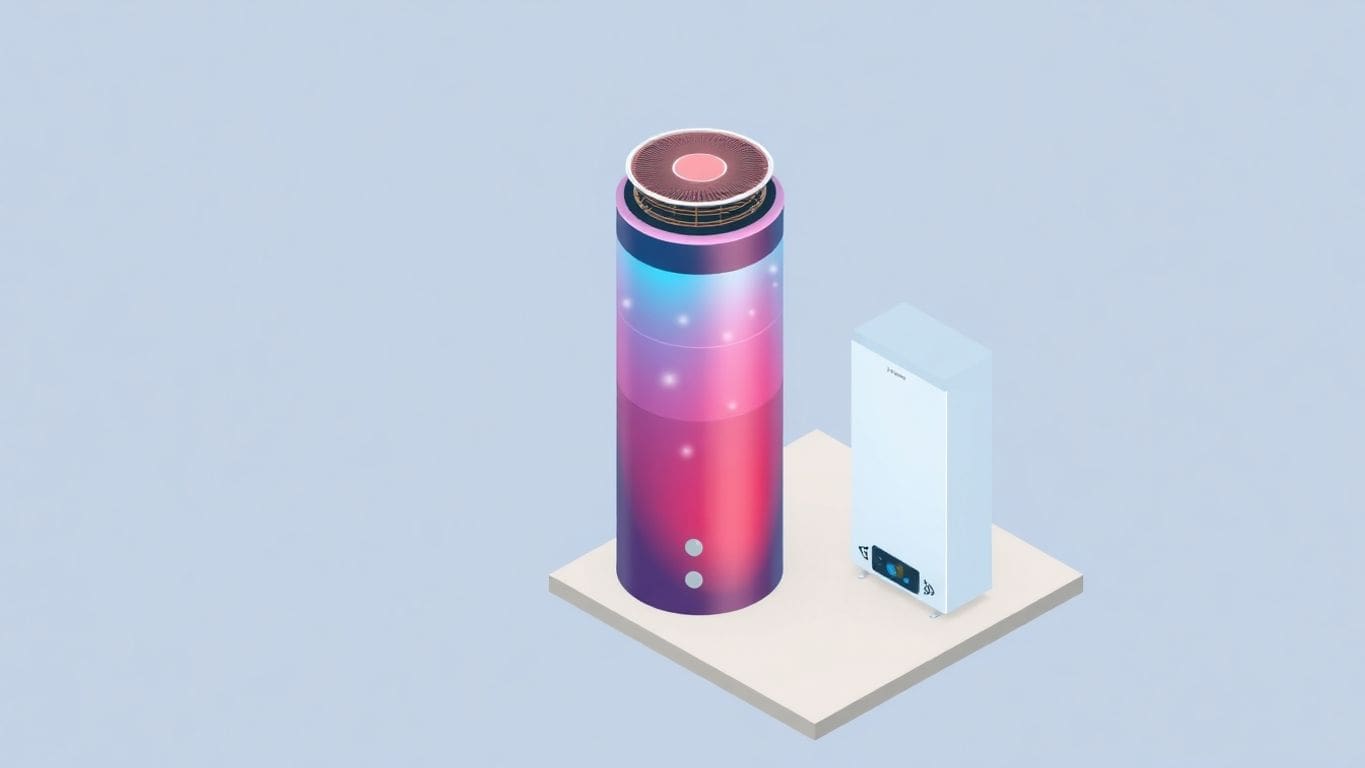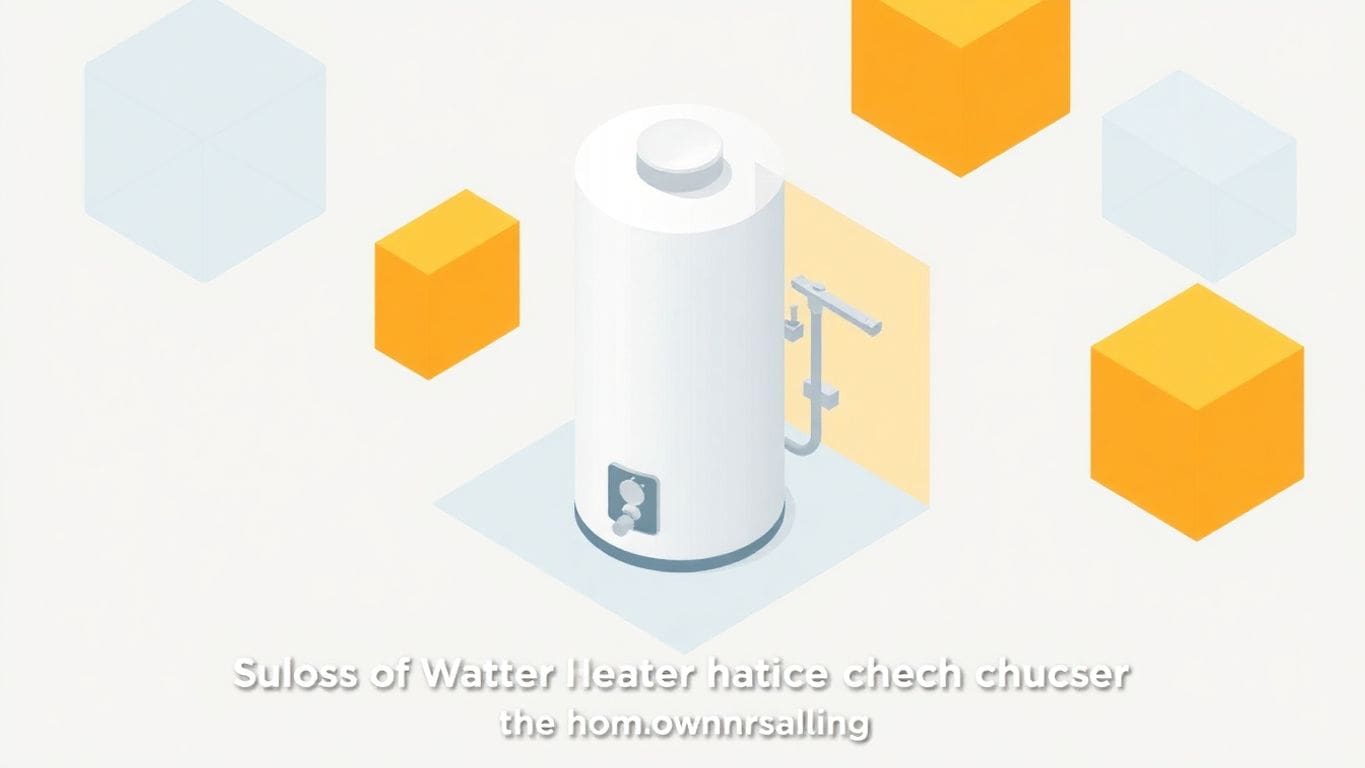
If you’re facing issues with your water heater, you might be wondering how long does water heater replacement take? This guide will walk you through the process, from understanding the timing involved to what you can expect during installation. Knowing what to anticipate can help you prepare better and ensure a smooth replacement experience.
So, you’re thinking about replacing your water heater? One of the first things on your mind is probably, "How long is this going to take?" Well, the good news is that most water heater replacements don’t take forever. Usually, a standard replacement takes about 3 to 5 hours. This includes removing the old unit and installing the new one. However, this is just an average. The actual time can change based on a few things.
Several things can make the replacement take longer. Here are a few:
It’s always a good idea to ask your plumber about potential delays. They can give you a better idea of what to expect based on your specific situation.
Planning is key to a smooth water heater replacement. Here’s how to schedule it right:
By planning ahead, you can make the whole process less stressful. Plus, you’ll know what to expect and can avoid any surprises.
It’s not always easy to know when your water heater is on its last leg. But, paying attention to the signs can save you from a cold shower or worse, a flooded basement. Here are some common indicators that it might be time for a new water heater.
Are you running out of hot water faster than usual? This is a common sign that your water heater is failing. If you notice that your showers are getting shorter because the hot water runs out, or that your appliances aren’t getting enough hot water, it’s time to take a closer look. Over time, sediment can build up in the tank, reducing its capacity. This means less hot water for you. It might be time to consider a water heater replacement.
Most water heaters last between 8 and 12 years. Check the age of your water heater. You can usually find the manufacturing date on a sticker on the side of the tank. If your water heater is getting up there in age, it might be time to start thinking about replacing it, even if it seems to be working fine now. Older units are more likely to break down and are often less energy-efficient than newer models.
Take a good look at your water heater. Do you see any signs of rust or corrosion? Are there any leaks around the base of the tank? These are serious problems that need to be addressed right away. A leaking water heater can cause significant damage to your home, and a rusty tank is likely to fail soon. Don’t wait until it’s too late. If you see any of these signs, call a plumber to inspect your storage water heater.
Ignoring these warning signs can lead to bigger problems down the road. Replacing your water heater before it fails completely can save you money and prevent a plumbing emergency.
Here’s a quick checklist:
It’s important to pick the right water heater. You want one that fits your needs and lasts a long time. There are a few things to think about before you buy.
There are different types of water heaters. Some heat water in a tank, while others heat it as you need it. Tankless water heaters heat water only when you turn on the tap. Tank water heaters store hot water, so it’s ready when you need it. Electric, gas, and even solar water heaters are available. Think about what works best for your home and how much hot water you use.
You want a water heater that doesn’t waste energy. Look for the Energy Star label. This means it meets certain standards for saving energy. A more efficient water heater can save you money on your energy bill each month. Consider the long-term savings when you’re making your choice.
Think about how long the water heater will last and how much work it will take to keep it running well. Some water heaters need more maintenance than others. Check the warranty to see how long the parts are covered. Regular maintenance, like flushing the tank, can help your water heater last longer.
Choosing a durable water heater can save you money and trouble in the long run. Make sure to read reviews and ask about the materials used in the water heater’s construction. A little research can go a long way.
Here are some things to consider:
Getting ready for your new water heater can make the whole process smoother. Here’s what you should do before the plumber arrives.
Make sure the area around your old water heater is clear. This gives the plumber room to work. Move anything that could get in the way, like boxes or furniture. A clear space helps the installation go faster and safer.
Before the plumber gets there, find some important info. Know the model and serial number of your old water heater. Also, have any warranty info handy. This helps the plumber choose the right water heater replacement and connect it correctly.
It helps to know what the plumber will do. Usually, they’ll:
Knowing these steps can help you understand what’s happening and ask the right questions. It also helps you prepare for any disruptions, like a temporary lack of hot water. Understanding the process reduces surprises.
So, you’re getting a new water heater! That’s great. But what happens during the installation process? Here’s a breakdown to help you know what to expect.
Here’s a general idea of what will happen:
Sometimes, things don’t go exactly as planned. Here are some common issues that can pop up:
It’s always a good idea to have a little extra time and money set aside in case of unexpected problems. That way, you won’t be stressed if something comes up.
After the water heater replacement is done, here’s what the plumber should do:
Make sure you understand everything before the plumber leaves. Don’t be afraid to ask questions!
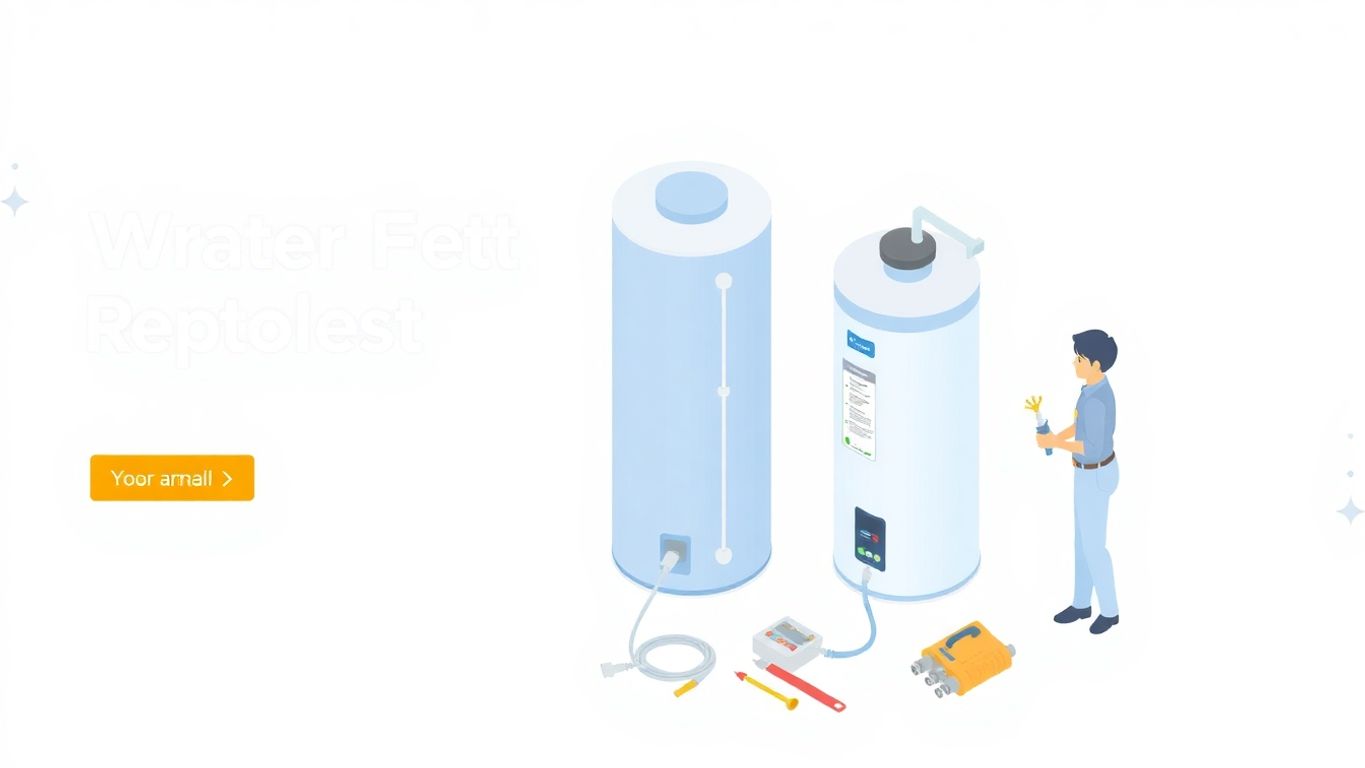
How long does it really take to swap out a water heater? Well, it depends. A simple swap, where you’re putting in the same type of water heater in the same spot, might only take a couple of hours. But if you’re switching to a different type, like going from a tank to a tankless, or moving the location, it can take longer. The average time is usually between 2 to 5 hours.
Lots of things can make the job take longer. Here are a few:
Let’s look at some real situations. I read online about a person who had their water heater replaced in just over an hour. The technician had the water heater in his truck. He filled out one form before and seven after. Another person said their water heater replacement took about 2 hours. The plumber explained each step and installed an expansion tank to help with water pressure. These stories show that every job is different. It’s best to talk to your plumber and get a good estimate of how long it will take.
Okay, you’ve got a new water heater! What’s next? First, don’t crank up the heat right away. Start with a normal setting, like 120°F. This saves energy and keeps you from getting scalded. Run the hot water at each faucet for a few minutes to get rid of any air in the lines. Keep an eye out for leaks around the new water heater during the first few days. It’s also a good idea to know where the shut-off valve is, just in case you need to turn off the water quickly.
To keep your water heater running well for years, do some simple maintenance. Once a year, flush out the tank to get rid of sediment. Sediment can make your water heater less efficient and shorten its life. Also, check the anode rod every few years. This rod protects the tank from rusting. If it’s mostly gone, replace it. You should also insulate the water heater if it’s in an unheated area. This helps save energy.
How do you know if your new water heater is working right? You should have hot water when you need it, and the temperature should be steady. There shouldn’t be any weird noises coming from the tank. Also, check for leaks regularly. If you see water around the base of the heater, call a plumber right away. If the water has a funny color or smell, that could also be a sign of a problem.
After getting a new water heater, it’s important to pay attention to how it’s working. Regular checks and simple maintenance can help you avoid problems and keep your water heater running smoothly for a long time.
Replacing a water heater can be a big expense. It’s good to know what to expect so you can plan your budget. Let’s look at the costs involved.
The cost to install a new water heater can vary a lot. It depends on the type of water heater you choose and how hard it is to install. For example, a simple tank water heater replacement is usually cheaper than installing a tankless model. Tankless heaters often need new gas lines or electrical work, which adds to the cost.
Sometimes, there are extra costs you don’t expect. These hidden fees can make the final bill higher than you planned. One reason for this is that certain procedures are needed to bring it up to building codes. Installation of additional parts such as water heater mounts and a drain might also be a possible cause. Always ask for a detailed quote so you know what you’re paying for.
It’s a good idea to get a few quotes from different plumbers. Make sure they explain all the costs involved. This will help you avoid surprises later on.
Even though a new water heater costs money upfront, it can save you money in the long run. Newer models are often more energy-efficient. This means they use less energy to heat water, which lowers your utility bills. Over time, the savings can add up and make the new water heater installation worth it.
Finding the right plumber can feel overwhelming. You want someone you can trust to do the job right, without costing you a fortune. Here’s how to find a good one.
Before you hire anyone, ask these questions:
It’s important to do your homework. Check online reviews on sites like Yelp, Google, and the Better Business Bureau. See what other customers say about their experience. Also, verify their license with your local licensing board. A plumber with a good reputation and proper credentials is more likely to provide quality service.
While DIY might seem tempting, water heater replacement is best left to the pros. Here’s why:
Hiring a professional plumber might cost more upfront, but it can save you money and headaches in the long run. A bad install can lead to leaks, inefficiency, or even dangerous situations. It’s an investment in your home’s safety and your peace of mind.
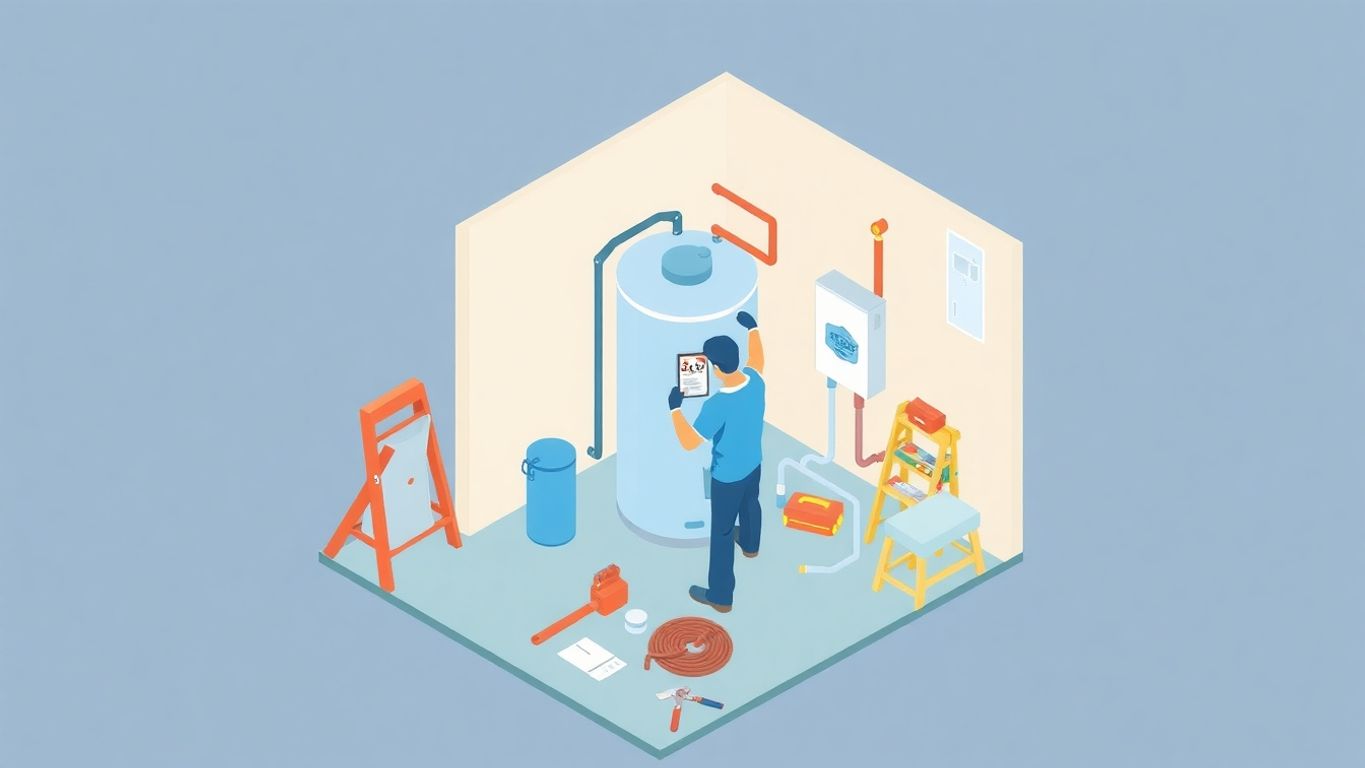
There are a lot of things people think they know about replacing a water heater. Some of it’s true, but a lot of it is just plain wrong. Let’s clear up some of the most common myths so you can make smart choices about your water heater.
Myth #1: You should wait until your water heater completely fails before replacing it. This is a bad idea. Waiting for a total breakdown can lead to water damage and a cold shower at the worst possible time. It’s better to replace it when you see signs of trouble, like less hot water or strange noises.
Myth #2: All water heaters last the same amount of time. Not true! The lifespan of a water heater depends on things like the quality of the unit, how well you maintain it, and the water quality in your area. Some might last 10 years, while others could go for 15 or more.
Myth #3: Replacing a water heater is super expensive. While it’s not cheap, think of it as an investment. Newer, more efficient models can save you money on your energy bill over time. Plus, avoiding a major leak can save you from costly water damage repairs.
Just because a water heater can last a certain number of years doesn’t mean it should. Here’s the deal:
Even if your old water heater is still chugging along, it might be costing you more money to run than a new, efficient model. Plus, older units are more likely to have problems, which can lead to unexpected repair bills.
Lots of people think they can save money by installing a water heater themselves. While it might seem simple, it’s usually not a good idea unless you’re a pro. Here’s why:
Hiring a licensed plumber might cost more upfront, but it’s worth it for the peace of mind. You’ll know the job is done right, and you won’t have to worry about leaks, gas problems, or voiding your warranty.
Sometimes, you can’t wait to replace your water heater. A total breakdown is an emergency. If your water heater is leaking a lot, or not working at all, it’s time to act fast. You don’t want water damage to your home. Also, if you have no hot water in the winter, that’s an emergency too. Don’t wait until it’s too late. Call a plumber right away.
While waiting for a new water heater, you might need some quick fixes. These aren’t long-term, but they can help.
These steps can make things easier until you get a new water heater replacement. Remember, these are just temporary. You still need a new water heater soon.
When your water heater fails suddenly, you need help fast. That’s where emergency plumbers come in. They can come to your house at any time. They can also figure out if you need a new heater or just a repair. Emergency plumbers usually cost more, but they’re worth it in a crisis. Make sure to ask about their fees before they start working. A good emergency plumber will get your hot water back on as soon as possible. They can also help prevent further damage to your home. Finding a reliable plumber is key in these situations.
Dealing with a water heater emergency can be stressful. Knowing who to call and what to do can make things a lot easier. Don’t hesitate to reach out for help when you need it. Your home and comfort are worth it.
On average, replacing a water heater can take about 2 to 4 hours, depending on the type of heater and the complexity of the installation.
Several factors can influence replacement time, including the type of water heater, the condition of the existing plumbing, and any additional repairs needed.
To prepare, clear the area around the water heater and gather any necessary information, like the model and age of your current heater.
Signs you might need a new water heater include a lack of hot water, visible leaks, or if your heater is over 10 years old.
There are several types of water heaters, including tankless, solar, and traditional tank water heaters, each with its own benefits.
Look for a plumber with good reviews, ask about their experience with water heater installations, and check their licenses.
After installation, it’s important to check the heater regularly, flush it twice a year, and adjust the temperature to prevent overheating.
Yes, some myths include that all water heaters last forever or that DIY installations are always safe, which isn’t true.

